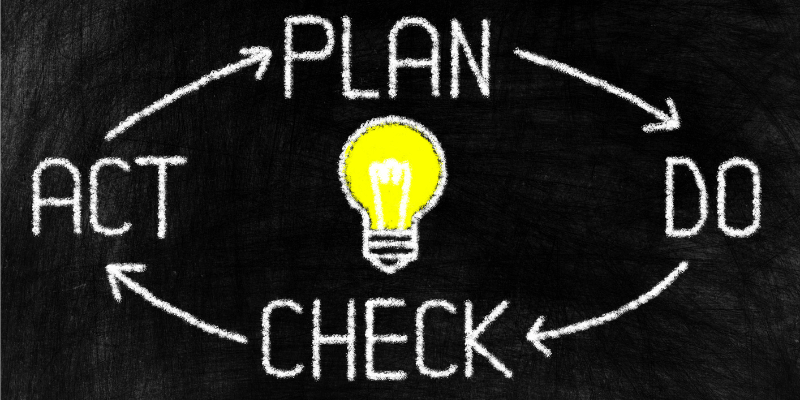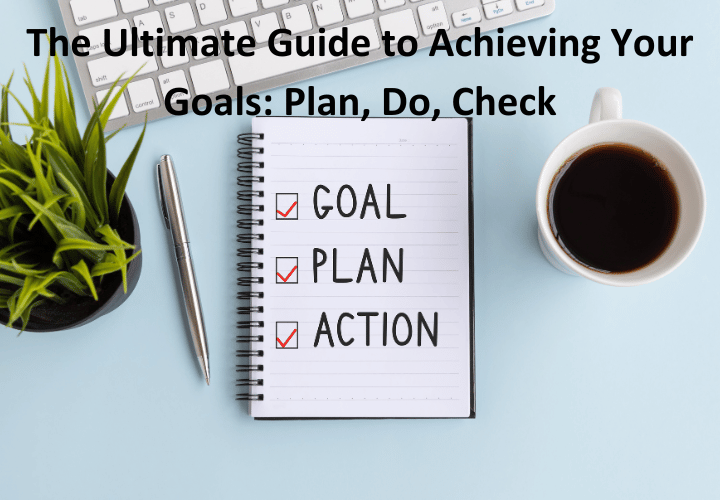Planning tools play a vital role to collect the necessary data to improve the learning skills of children and students. Being a teacher or parent, you need proper assistance with an effective goal plan with proven strategies. Such goal plans assist your students and children in the process of goal-setting.
In this scenario, the Goal-plan-do-check is the best strategy, proposed by the occupational therapist. Both teachers and parents can assist their students and children with an effective Goal-plan-do-check plan to enhance their cognitive skills. An active goal plan strategy helps students to achieve learning goals.
What is Goal Plan Do Check?
Goal-plan-do-check is a CO-OP approach that helps in problem-solving and executive functioning. It is popular in building executive functioning skills among students and children. CO-OP is the best global strategy to improve the occupational performance of children and adult students. It also focuses on cognitive orientation.

The CO-OP approach is evidence-based and it assists school-age children and adult students to complete the pressurizing tasks. The concept of CO-OP is all about the goal-plan-do-check strategy that is the best framework to focus on the occupational performance of your child.
Your middle school children and adult students can achieve problem-solving behavior with the help of this global strategy. CO-OP builds links to occupational performance and cognitive orientation in your child during classroom lessons. The occupational therapist suggests the CO-OP strategy for cognitive progress.
This evidence base approach has key features like giving ownership and a free hand toward the task. It motivates your child or school student toward the task to complete with personal concepts, strategy, and planning. The children and students are provided with the support of a therapist, parent, or teacher for active play. The provided visual aids and planning tools help students and children to complete the task without a U-turn behavior.
What are the 5 R’s of goal-setting?
- Reflect
To perform a new goal plan, reflect on your past year’s planning and strategy to improve the current planner.
- Reall
Always prefer realistic goal-setting by using the concept of the SMART goal framework. The best feature of a realistic goal plan is to complete the tasks within a short time with available resources.
- Relax
Be patient toward your achievements and always practice a positive attitude. If you have intended a big goal you need to perform well and wait for the visual results.
- Relapse
Don’t feel fear of relapses they are part of the process and be better than before.
- Review
Always be interested to review your progress to recheck the details of your achievement and look after the goal plan framework for necessary improvements and follow the plan-do-check strategy.
What are 3 goals you have for your child?
- Help my school-age child in learning the idea of a traffic light system by telling him/her the difference between red light, green light, and yellow light every day while going to school.
- Help my child to build a problem-solving attitude by giving him/her the concept of cognitive orientation.
- Support my child in every subject to complete the classroom task.
What are problem-solving goals in occupational therapy?
The beginning of occupational therapy involves the analysis of the cognitive history of the child through some problem-solving features by the therapist. The CO-OP works only if the child is capable of responding to things asked by the therapist. Here are some problem-solving goals proposed by the therapist for children.
- Children are given some problems.
- Children identify the problem.
- Children focus on the specific question.
- Children build the idea to solve the problem.
- Children find the solution to the very problem.
- The child uses problem-solving skills to get the results.
How to Implement Goal Plan Do Check?
Goal-plan-do-check is a four-step strategy introduced by the occupational therapist to help parents and teachers to support their children and adult students to focus on executive functioning skills.
The goal plan worksheets or any plan-do-check planner page is a good resource to implement a plan-do-check. This framework is a good resource for collecting the written data of students. Here are some of the best strategies to implement the plan-do-check structure.
- Provide a step-by-step guide on how to apply “Goal Plan Do Check”
Goal: Note the interests of your children and support them to write their school and classroom goals. Tell them the importance of goal-setting and encourage them to complete daily tasks with a good strategy.
Plan: If your child is successful in creating goals, help him to make a plan to achieve these goals. Play the role of a therapist to help your child in every subject area. A good plan is also an executive functioning to develop skills in your children.
Do: This is the action step toward the task to complete. Always encourage your student and child to practice an attitude with a focus to complete the classroom task.
Check: A good check and balance are necessary to be active toward any task. The child at this stage learns the importance of the plan and focuses on the benefits and drawbacks of the plan.
- Offer tips and strategies to make the process more effective.
Being a parent or teacher you can think of new features and learning tools to reflect the importance of the plan-do-check framework to your child and student.
For example, you can resemble the plan-do-check structure to a traffic light system to make the process fun for your children and adult students as well. Relating the red light, yellow light, and green light to the Goal-plan-do structure respectively can be a good visual resource for both children and students to note their progress in learning skills themselves.
Access to learning tools in the classroom can be a good source to develop cognitive focus and executive functioning skills in your children and students. Active teacher support in data analysis is beneficial for a student to complete the task on time.
Set a “School goals” page
A problem-solving attitude and executive functioning skills are needed for middle school children and students to perform well in school and the classroom. Teachers should write a page on “ school goals” to develop mentioned skills in the students. School goals help teachers and parents to evaluate the progress of students.
The “school goals” page can be an effective resource for tracking classroom progress among students. These kinds of worksheets provide good support to the teacher to integrate the necessary data of students.
- Use a plan-do-check worksheet or planner page
The goal plan worksheet or a planner page is a helpful resource to write the details of goals to achieve. A site or website that focuses the occupational performance is also a good resource for such cognitive worksheets to help in improving the skills of your children and students. It is the best strategy to collect the cognitive data of students to show to their parents.
A template for Goal Plan DO Check
An effective goal-plan-do-check worksheet includes all the features that help complete the school and classroom tasks of a student. These worksheets play the role of learning tools created by a collection of student learning data.
To note the yearly student details cognitive worksheets should be introduced from the beginning of the year.
Conclusion
The CO-OP approach is an executive functioning used by the occupational therapist as a global strategy due to CO-OP features and is among the best learning tools to increase occupational performance in children and students.
Goal plan worksheets and planners fit best in this scenario!
FAQ’
What are some examples of Goal Plan Do Check in Action?
Goal: Make coffee
Plan: Buy the coffee pack
Do: Beat the coffee with sugar, add milk, and pour into the mug.
Check: It works
What are the 4 steps of the CO-OP theory in order?
The CO-OP approach involves the following steps.
- Positive interdependence
- Individual accountability
- Equal participation
- Simultaneous interaction
What is the process of goal setting?
Here is the process of goal setting.
- Prepare a written planner of your tasks and goals
- Use the idea of a SMART goal plan
- Note your resources and hurdles
- Assist yourself with the goal-plan-do-check framework
- Practice rechecking your strategy

